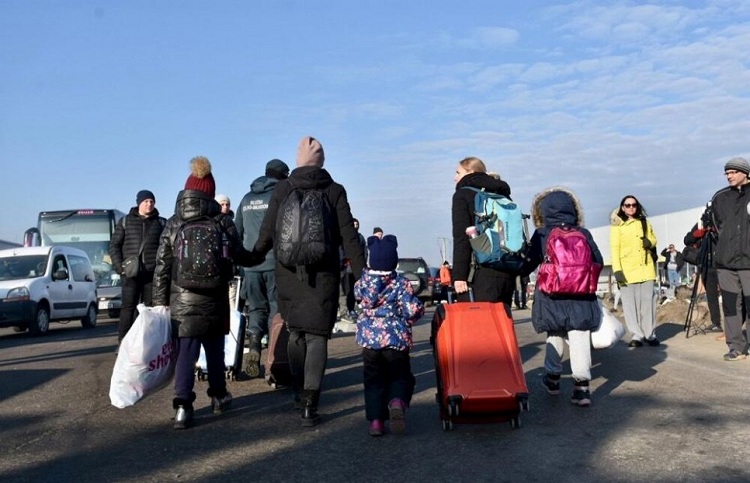The Diplomat
The plenary session of the Congress will debate and vote tomorrow on an organic bill of the Socialist Parliamentary Group to increase the penalties against trafficking in displaced human beings in the case of people fleeing the war in Ukraine.
The organic bill, presented last April (in the middle of the wave of arrival of Ukrainian refugees after the Russian invasion of their country), aims to “increase the penalties for crimes of trafficking in human beings displaced by armed conflict caused by the invasion of Ukrainian territory by troops of the Russian Federation”. The Lower House will analyze tomorrow both the opinion approved at the beginning of October by the Justice Commission and the amendments which are still alive regarding this bill. After the vote on the text, if approved, they will continue to be processed in the Senate.
According to the proponents, the invasion of Ukraine “is causing a humanitarian disaster of dire consequences”, with millions of Ukrainians displaced throughout Europe, tens of thousands of them in Spain”. “These people who have had to leave their country in terrible circumstances, due to this bloody war conflict, are exposed to situations of extreme vulnerability, especially women, girls and children displaced in the face of human traffickers, who have already been detected stalking these people,” the text continues.
The proposal also recalls that the Committee on Civil Liberties, Justice and Home Affairs and the Committee on Women’s Rights and Gender Equality of the European Parliament in February 2021 urged States to establish severe criminal penalties for trafficking offenses. “Given these circumstances, it is appropriate to approve a criminal bill with a temporary validity that appropriately increases the penalties for crimes of trafficking in human beings,” says the Socialist Group.
Therefore, the Socialist initiative calls for the inclusion of a new paragraph in Article 4 of Article 177 bis of the Criminal Code to apply a “new aggravated modality” when “the victim is a person whose situation of vulnerability has been originated or aggravated by the war conflict motivated by the invasion of the Ukrainian territory initiated on February 24, 2022 by troops of the Russian Federation”. The aim of the proponents is for the law to enter into force the day after its publication in the Official State Gazette and to be effective for eighteen months from its entry into force.
During the presentation and first debate of the proposal, which took place last May in the plenary session of Congress, the socialist MP Andrea Fernández Benéitez stated that, although “Russia’s attack on Ukraine is of unprecedented gravity and is having global consequences”, the horror “does not end here” because “both the security forces and international non-governmental organizations have reported the presence on the borders of Ukraine of unidentified men waiting for the departure of women and children, presumably to help them reach a safe destination in Europe”.
“Nothing could be further from the truth,” she denounced. “We know that many, especially women, have been intercepted and made available to trafficking networks for prostitution,” she continued. “It is unacceptable that Europe, but particularly Spain, has not yet brought out measures to put an end to trafficking in women. The fall of hundreds of Ukrainian women has been as easy as waiting for them at the gates of the borders, because these mafias are perfectly integrated in our societies and are an economic engine that very few seem to mind”, she added.






